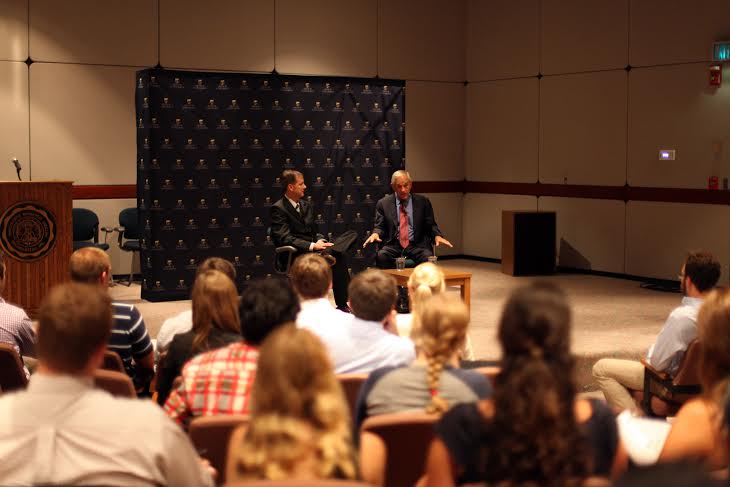Prof. Jeff Gropp Offers Thoughts on Proposed Minimum Wage Hike in Newspaper Op-Ed
February 22, 2014
 According to Jeff Gropp, associate professor of economics and management and chair of the department at DePauw University, "Minimum-wage laws fail to help those whom they are intended to help and, in fact, could do more harm than good." In an Orlando Sentinel column, Dr. Gropp argues against a proposed hike in the federal minimum wage for private-sector employees.
According to Jeff Gropp, associate professor of economics and management and chair of the department at DePauw University, "Minimum-wage laws fail to help those whom they are intended to help and, in fact, could do more harm than good." In an Orlando Sentinel column, Dr. Gropp argues against a proposed hike in the federal minimum wage for private-sector employees.
"Researchers found that only 11.3 percent of workers who live in poor households would receive benefits from raising the minimum wage and the working poor share a 'disproportionate share of the job losses'," notes Gropp. "One reason for such an outcome is that only 2.65 percent of all American workers earn the minimum wage or less (and have an average family income of $53,000). Of this 2.65 percent, only 23 percent are at or below the poverty line."
Jeffrey M. Gropp, who is Norman Miller Johnson Professor of Economics and Management at DePauw, continues, "Additionally, similar to internships, where employees work for free, jobs offering the minimum wage are intended as entry-level and transitory, not permanent ... The vast majority of minimum-wage earners find employment at higher-paying jobs as they acquire additional experience and education. And more than 90 percent move beyond minimum wage within two years." (at left: Prof. Gropp moderating a DePauw student forum with former congressman and three-time presidential candidate; September 10, 2013)
beyond minimum wage within two years." (at left: Prof. Gropp moderating a DePauw student forum with former congressman and three-time presidential candidate; September 10, 2013)
The professor writes, "While some argue that certain demographic groups are more likely to end up in minimum-wage careers, minimum-wage laws should not be seen as a panacea for dealing with those who experience long-term employment in jobs offering the minimum wage" and, in fact, have "the potential to make the problem worse. For example, one study found that increasing minimum wages raises the probability that higher-skilled teens leave school to take such jobs, displacing lower-skilled teens who then find themselves unemployed and not enrolled in school. Put simply, a higher ininimum wage has the potential to distort the information that wages convey -- possibly causing some to make bad decisions."
Gropp concludes, "If the goal is to assist the working poor, then expanding the Earned Income Tax Credit or job-training programs would be far more direct and efficient."
The essay is available to subscribers at the Sentinel's website.
Source: Orlando Sentinel
Back